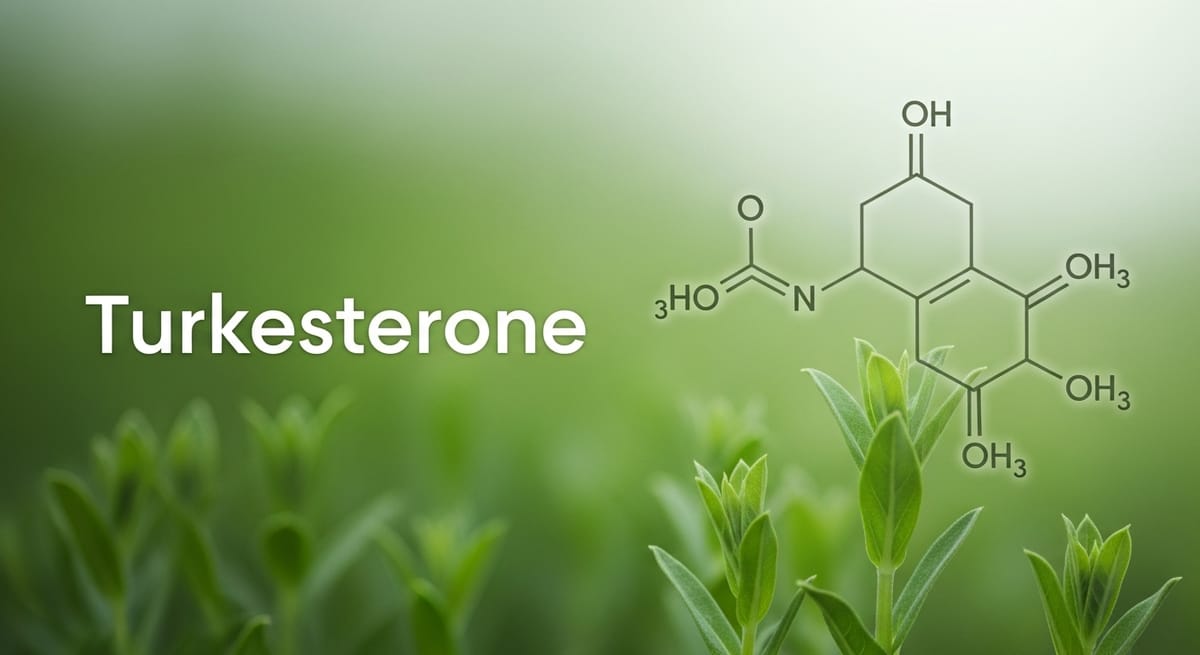Turkesterone: Unpacking the Hype Around this "Natural Anabolic" Supplement

The current body of scientific evidence does not conclusively support the widespread claims that turkesterone, a so-called "natural anabolic agent," significantly enhances muscle growth, strength, or athletic performance in humans. While preclinical studies in animals and in vitro have shown some promising potential, the limited number of human clinical trials have yielded conflicting and largely underwhelming results.
Turkesterone is a phytoecdysteroid, a type of steroid hormone found in certain plants, most notably Ajuga turkestanica, which is native to Central Asia. Ecdysteroids are also found in insects and play a crucial role in their molting process. This structural similarity to hormones has fueled interest in their potential anabolic, or muscle-building, effects in mammals.
The Allure: Purported Benefits of Turkesterone
Proponents of turkesterone supplementation often tout a range of benefits, including:
- Increased Muscle Mass: The primary claim is that turkesterone can stimulate muscle protein synthesis, leading to significant gains in lean body mass.
- Enhanced Strength and Power: Users often report noticeable improvements in their strength and overall athletic performance.
- Improved Recovery: It is suggested that turkesterone can aid in post-workout recovery by reducing muscle damage and inflammation.
- A Safer Alternative to Anabolic Steroids: A key selling point is that turkesterone may offer anabolic benefits without the adverse side effects associated with traditional anabolic-androgenic steroids, such as hormonal suppression, liver toxicity, and cardiovascular issues.
Scrutinizing the Science: What the Research Actually Shows
Despite the enthusiastic anecdotal reports and marketing claims, the scientific evidence to substantiate these benefits in humans remains sparse and inconsistent.
Limited and Conflicting Human Trials:
To date, there is a significant lack of robust, long-term human clinical trials specifically investigating the effects of turkesterone. One preliminary study involving the daily supplementation of 500mg of turkesterone for four weeks in active individuals found no significant effects on body composition (lean mass or fat mass) compared to a placebo group. Another study reported a subjective perception of improved strength among users, but this was not a controlled clinical trial and is therefore susceptible to bias.
Research on a related ecdysteroid, ecdysterone, has also produced mixed results. A notable 2019 study by Isenmann et al. reported that ecdysterone supplementation led to significant increases in muscle mass and strength in resistance-trained men. However, this study has been met with criticism due to methodological concerns, including the unexpected loss of muscle mass in the placebo group and a later analysis revealing that the supplement used contained substantially less ecdysterone than was stated on the label. Other human studies on ecdysterone have failed to replicate these positive findings, showing no significant impact on muscle growth or performance.
Insights from Preclinical Research:
The majority of the positive data on turkesterone comes from animal and in vitro (test tube) studies. This research suggests that turkesterone may influence muscle growth by interacting with specific signaling pathways, such as the estrogen receptor beta (ER-β) and the PI3K/Akt/mTOR pathway, which are known to play a role in protein synthesis. However, it is a well-established principle in medical science that findings from animal and cell-based studies do not always translate to humans.
The Wild West of Supplements: Quality Control and Regulation
A significant concern surrounding turkesterone and other ecdysteroid supplements is the lack of regulation and the questionable quality of many products on the market. Independent analyses of commercially available supplements have often found that they contain significantly lower amounts of the active ingredient than advertised, and in some cases, none at all. This makes it difficult for consumers to know what they are actually ingesting and for researchers to conduct reliable studies.
Safety and Side Effects
Based on the limited human data available, turkesterone appears to be generally well-tolerated, with no significant adverse effects on markers of liver or kidney function reported in short-term studies. However, the long-term safety of turkesterone supplementation in humans is currently unknown due to the lack of extensive research.
The Bottom Line
While the theoretical basis for turkesterone's anabolic potential is intriguing, the current scientific evidence from human trials is insufficient to support the claims of significant muscle growth and performance enhancement. The positive results from preclinical studies have not yet been consistently replicated in humans, and the supplement market is plagued by issues of quality control. Individuals considering turkesterone should be aware of the limited scientific backing and the potential for product-related inconsistencies. As with any supplement, consulting with a healthcare professional before use is always recommended.